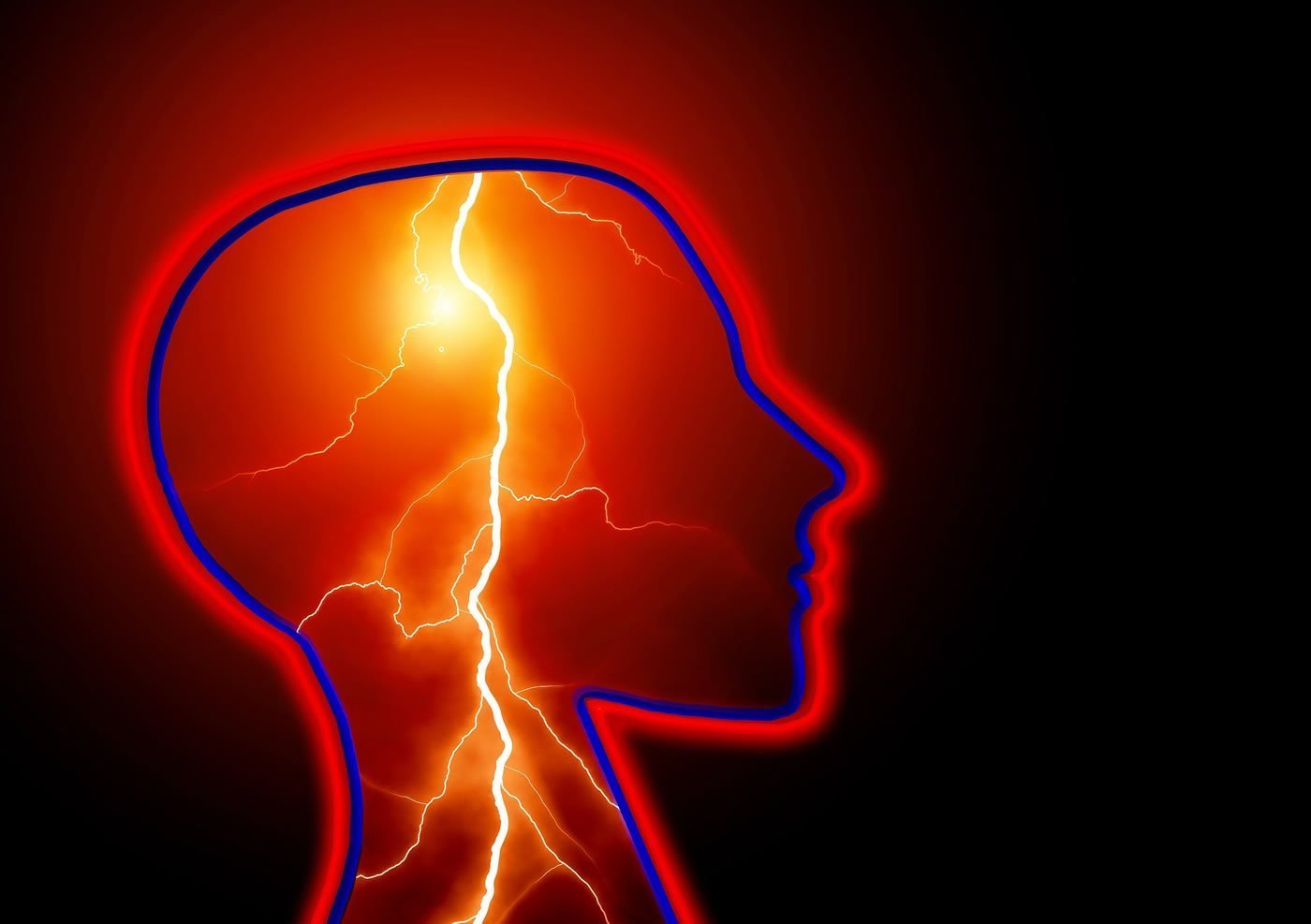Summary: 8% of patients with a history of seizures reported experiencing hallucinations. Of the 8%, 53% reported one or more suicide attempts. Findings suggest hallucinations associated with seizures are not just incidental but are a marker for mental health risks and suicidal behavior.
Source: TCD
Researchers from Trinity College Dublin and the Royal College of Surgeons in Ireland (RCSI) have shown for the first time, the mental health significance of hallucinations in people with a history of seizures.
In a study published today, findings show that 8% of individuals with a history of seizures report hallucinations, including experiences of hearing or seeing things that are not based in reality. And, most importantly of that 8%, 65% also met criteria for one or more mental health disorders and 53% had one or more suicide attempt.
The study is published in leading journal Epilepsia. As part of one of the longest running studies of mental health in the general population, researchers assessed a wide range of physical and mental health factors in 15,000 people living in the UK. Hallucinations are known to occur in a proportion of adults with seizures but may be erroneously viewed as ‘incidental’ symptoms of abnormal electrical activity in the brain and nothing more. The findings of this study tell us that these symptoms are not just incidental in people with seizures; they are important markers of risk for mental ill health and for suicidal behaviour.
Dr Ian Kelleher, Research Associate Professor of Psychiatry, Trinity and Senior Author of the study said:
” People with epilepsy are known to be at increased risk of suicide. But among individuals with seizures, it’s hard to pick out who is most at risk. What this research shows is that people with seizures who report hallucinations are a particularly high-risk group for suicidal behaviour – about half of these individuals had one or more suicide attempt. So, it’s important in epilepsy clinics to ask about hallucinations – and where someone endorses these symptoms, to carefully examine their mental state.”

In an Irish context, anecdotal evidence tells us that auditory and visual hallucinations are not routinely assessed in epilepsy clinics.
Kathryn Yates, RCSI, Study Author said:
“It’s not surprising that individuals with seizures have a higher rate of hallucinations – almost any disease that affects the brain is likely to increase risk of hallucinations. However, it’s important to recognise that hallucinations don’t simply reflect abnormal electrical activity in individuals with epilepsy; they’re important markers of risk for mental health problems and suicidal behaviour.”
Dr Kelleher concluded:
“We’ll need further research to fully understand the significance of hallucinations in people with seizures. But what’s clear from this work is that, for clinicians working with people with seizures, asking about auditory and visual hallucinations should be a routine part of their assessment.”
About this neuroscience research article
Source:
TCD
Media Contacts:
Ciara O’Shea – TCD
Image Source:
The image is in the public domain.
Original Research: Open access
“Prevalence and psychopathologic significance of hallucinations in individuals with a history of seizures. by Dr Ian Kelleher et al.
Epilepsia doi:10.1111/epi.16570
Abstract
Prevalence and psychopathologic significance of hallucinations in individuals with a history of seizures
Objective
A relationship between seizure activity and hallucinations is well established. The psychopathologic significance of hallucinations in individuals with seizures, however, is unclear. In this study, we assessed the prevalence of auditory and visual hallucinations in individuals who reported a seizure history and investigated their relationship with a number of mental disorders, suicidal ideation, and suicide attempts.
Methods
Data were from the “Adult Psychiatric Morbidity Survey,” a population‐based cross‐sectional survey. Auditory and visual hallucinations were assessed using the Psychosis Screening Questionnaire. Mental health disorders were assessed using the Clinical Interview Schedule. Logistic regressions assessed relationships between hallucinatory experiences and mental disorders, suicidal ideation, and suicide attempts.
Results
A total of 14 812 adults (58% female; mean [standard error of the mean; SEM] age 51.8 [0.15]) completed the study; 1.39% reported having ever had seizures (54% female), and 8% of individuals with a seizure history reported hallucinatory experiences (odds ratio [OR] 2.05, 95% confidence interval [CI] 1.24‐3.38). Individuals with seizures had an increased odds of having any mental disorder (OR 2.34, 95% CI 1.73‐3.16), suicidal ideation (OR 2.38, 95% CI 1.77‐3.20), and suicide attempt (OR 4.15, 95% CI 2.91‐5.92). Compared to individuals with seizures who did not report hallucinatory experiences, individuals with seizures who reported hallucinatory experiences had an increased odds of any mental disorder (OR 3.47, 95% CI 1.14‐10.56), suicidal ideation (OR 2.58, 95% CI 0.87‐7.63), and suicide attempt (OR 4.61, 95% CI 1.56‐13.65). Overall, more than half of individuals with a seizure history who reported hallucinatory experiences had at least one suicide attempt. Adjusting for psychopathology severity did not account for the relationship between hallucinatory experiences and suicide attempts.
Significance
Hallucinatory experiences in individuals with seizures are markers of high risk for mental health disorders and suicidal behavior. There is a particularly strong relationship between hallucinations and suicide attempts in individuals with seizures. Clinicians working with individuals with seizures should routinely ask about hallucinatory experiences.
Feel Free To Share This Neuroscience News.






